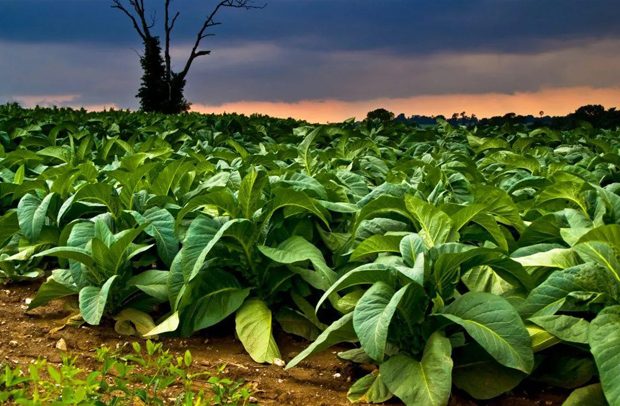The World Health Organisation (WHO) has called on the government to support tobacco farmers to switch to alternative crops.
This, according to the international health organisation can be achieved through ending tobacco growing subsidies and using the savings for crop substitution programmes to improve food security and nutrition.
“Shifting from tobacco to nutritious food crops has the potential to feed millions of families and improve the livelihoods of farming communities in Ghana,” said WHO country representative Dr. Francis Kasolo in a speech read on his behalf.
He explained that such initiatives will also combat desertification and environmental degradation, raise awareness in tobacco farming communities about the benefits of moving away from tobacco and growing sustainable crops and exposing the tobacco industry’s efforts to obstruct sustainable livelihoods work in the Africa Region.
Dr. Kasolo was speaking at the 2023 World No Tobacco Day on the theme, “We Need Food Not Tobacco,” in Accra.
He said the Ministry of Health and stakeholders need to step up the implementation of Articles 17 and 18 of the WHO Framework Convention on Tobacco Control (WHO FCTC) by enacting legislation, developing, and implementing suitable policies and strategies.
“They need to create an enabling market conditions for tobacco farmers to shift to growing food crops that would provide them and their families with a better life while enhancing the protection of the environment and the health of people.
By doing this, we will be growing food, which our populations need, not tobacco,” he stated.
The WHO estimates that tobacco is grown as a cash crop on an estimated 4 million hectares of land in more than 125 countries, clearing an estimated 200,000 hectares of forest each year in the process.
Given the state of the global food supply today, tobacco is grown on the small amount of arable land that could be used to grow more food crops.
According to the Tobacco Atlas, more than 6,700 Ghanaians die every year due to tobacco-related illnesses of which sixty-six percent (66%) of these deaths are individuals under age 70.
Tobacco is a significant threat to health and sustainable development causing premature death and preventable disease such as cancer, cardiovascular diseases, stroke, hypertension that result in economic losses, widens socioeconomic inequalities, and impedes progress towards the achievement of the Sustainable Development Goals (SDGs).
Ministry Of Health, Chief Director, Alhaji Hafis Adams, said the country has taken giant steps in tobacco control including the Protocol to Eliminate Illicit Trade in Tobacco Products which came into force in January 2022.
He said the inclusion of tobacco specific provisions in the Public Health Act, 2012, passage of the Tobacco Control Regulations, 2016 (L.I. 2247) the introduction of graphic health warnings, and the Framework Convention on Tobacco Control (FCTC) 2030 Project are efforts the government is implementing to control the use of tobacco.
Deputy Chief Executive Officer Food and Drugs Authority (FDA), Seth Seaneke said World No Tobacco Day commences a year-long nationwide campaign which includes media engagements, public education in secondary schools and community sensitization on the need to end tobacco usage.
By Jamila Akweley Okertchiri


